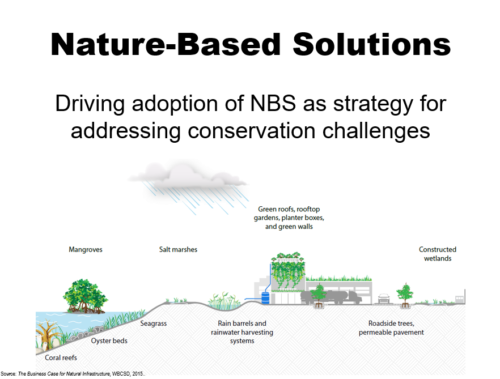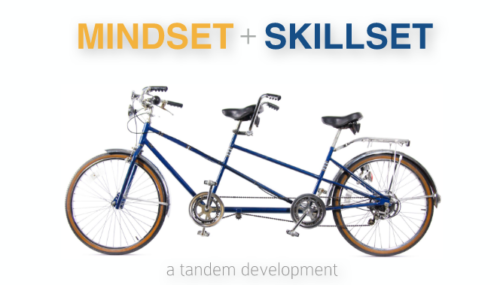Over the coming decade, engineering firms will face significant challenges from both the external environment and from internal forces. Impacts from the external environment will be shaped by global risks (economic, environmental, geopolitical, societal, and technological), including how the clients of engineering firms respond to these risks. Internal challenges will include adapting to the aspirations, values, and needs of new generations of engineers and other young professionals that manifest as they join and build careers within firms. Engineering Change Lab – USA (ECL-USA) Summit 12 explored the potential impacts of these challenges.
In the first half of Summit 12, participants looked at the external landscape of the next decade. Discussions were informed and inspired by our provocateurs.
- Stephen Brockwell, Senior Product Owner for AEC at ESRI, outlined accelerating changes in digital practice for engineering firms. He described how digital tools utilizing machine learning, artificial intelligence, and generative design are allowing collaborative teams of engineers, cloud computing service providers, intelligent machines, clients, and contractors to innovate design and construction projects and processes.
- Martha Rogers, Natural Capital Economist at The Nature Conservancy, reminded participants of growing environmental challenges that society and the clients of engineering firms will face in the future. She challenged participants to consider that nature-based solutions can provide significant means for meeting the challenges of biodiversity loss, reduction of greenhouse gas emissions, population and economic growth, and providing for society’s food and energy needs. Nature-based strategies can be particularly important for the private sector by offering innovative, cost-effective solutions that work as synergistic elements of business strategies.

- Chris Murphy, Chief Technology Officer at Black & Veatch, described the opportunities and challenges for engineering firms transitioning to digital business models. After offering a set of possible models, he outlined key questions and issues that need to be addressed to ensure that the adoption of digital service models adds value for clients and enhances firms’ competitive advantage. He also stressed the importance of agility, flexibility, and an ability to “learn from failure” for firms moving toward adoption of digital business models.
In group exercises, participants explored the future risk landscape for different types of engineering firm clients (government, institutional, private sector). Risks evaluated included economic, environmental, and technological. The focused discussions addressed how clients might respond to risks; the types of assistance needed from engineering firms, including new value propositions and business models; and the new types of collaborations and talent that firms may need to provide this assistance.
Key Insights
- Public sector clients will need assistance in thinking more creatively with respect to the revenue generation potential of their assets (e.g., new uses for public right-of-way) and in broadening their perspectives with respect to addressing environmental challenges.
- Private sector clients will need guidance in why they should incorporate a long-term perspective into their thinking and planning and why they should listen to a wider and more diverse group of project stakeholders.
- Public sector and institutional clients will need assistance in recognizing the importance of investments in long-term planning and resilience.
- Engineering firms can create value by assisting public sector clients in thinking beyond outdated processes and standards.
- Opportunities for engineering firms include embracing increased diversity and engaging in new types of partnerships/collaborations to help clients adapt and address future challenges.
- To contribute at higher levels in the future and to escape current commoditized financial models, engineering firms will need to adapt their cultures to accept more of an entrepreneurial mindset.

In the second half of the summit, participants explored the challenges and opportunities that come along with the workforce of the future, with emphasis on the values and aspirations of those future generations. Two provocations highlighted two emerging mindsets that may be particularly significant for firms in the coming decade.
- Doug Melton, Program Director at The Kern Family Foundation, described their work to develop an entrepreneurial mindset in engineering students. Adoption of an engineering mindset that reframes the work of engineering for students moving beyond just technical problem solving to “creating value for people.” He challenged summit participants to consider if we are ready for new generations of engineers trained as entrepreneurial thinkers and actors.
- Mark Abbott, Executive Director of Engineering Change Lab – Canada, outlined ECL-Canada’s strategies to create a tipping point in the adoption of technological stewardship as a fundamental mindset and set of values and behaviors for the engineering community, with 25% of the Canadian engineering community practicing technological stewardship (behavior that assures that technology is beneficial for all) within the next ten years.
Summit 12 also featured the presentation of results from two ECL-USA sponsored research efforts exploring workforce values.
- Kyle Davy and Mike McMeekin presented the findings from ECL-USA’s series of focus groups of different age cohorts within engineering firms. One of the key findings from the focus groups was the importance placed on “making the world a better place” and “positively impacting communities” as both sources of inspiration and as core beliefs for all age cohorts, demonstrating the importance of “purpose” in employee engagement. Participants in the focus groups also highlighted and resonated with the central importance that firms place on “putting people first” as an organizational value.
- Darshan Karwat, Arizona State University, assisted by team members Eric Stribling and Madison Macias, presented the results of ASU’s online values survey of employees in consulting engineering firms. The survey, a pilot project funded by ECL-USA, included 365 participants and focused specifically on the environmental and social values of practicing engineering firm professionals. One of the demographic findings from the survey was that younger engineers tend to identify as more politically liberal than older engineers. The survey results indicated that environmental protection, social justice, and workplace diversity are viewed as personally important across all demographics with environmental protection showing the strongest support. The survey revealed an important finding that younger professionals and females were most likely to agree that their employer should be more concerned about the impacts of engineering on the environment. The survey also revealed a wide disparity in beliefs regarding the importance of diversity in engineering firms and the impacts of engineering on social justice depending on political views.
In the second exercise of the summit, participants reflected on how evolving personal values will impact firms over the next decade.
Key Insights
- The firm of the future will need to find a balance between traditional practice and new demands for attention to environmental protection and social justice in its project work and diversity, inclusion and equity within its organization.
- As new generations of young professionals express concern over the environmental and social impacts of their work, there could be tension with traditional project delivery and performance metrics – schedule, budget, etc.
- Conflict could also manifest when client goals and objectives clash with the values of young professionals in firms.
- There is evidence now of the emergence, in some firms, of tensions around environmental values, of efforts to provide young staff with more of a voice in decision-making, and of shifts in types of projects being pursued (or not pursued) based on employee interests (e.g., turning down a coal-fired power plant project).
- To constructively confront these types of conflicts, firms need to create a safe space/culture that supports dialogue and reflective practices.
- There is a clear need for investments in training and development related to entrepreneurship, with some firms already moving in this direction.
- Firms are seeing the need for shifts in policies to support women employees and maintain diversity.
- Firm leaders will need to adapt their thinking and their practices to accommodate emerging values and aspirations.
All provocateur presentations are available on the ECL-USA website (Summit Information | Engineering Change Lab – USA (ecl-usa.org)). You can also see the recording of the summit on YouTube (https://youtu.be/MG3QmC3QkY4). Look for a more detailed summary of the summit in the coming weeks.

